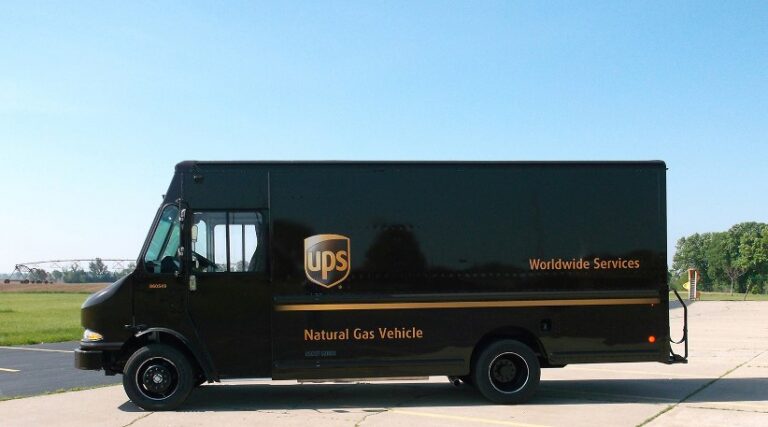In the United States, UPS announced in April plans to build 15 compressed natural gas (CNG) fueling stations to support the purchase and planned deployment of 1,400 new CNG vehicles over the next year. Twelve of the CNG stations will be in new natural gas vehicle deployment areas, and three will replace existing CNG stations with more robust, higher capacity equipment.
This purchase represents a nearly 30% increase to UPS’s current industry-leading alternative fuel and advanced technology fleet of 5,088 vehicles worldwide. The CNG fueling stations and vehicle purchases are part of UPS’ ongoing commitment to diversify its fuel sources, implement a fleet infrastructure that lowers tailpipe emissions and increase experience using alternative fuels in freight transport applications.
“UPS’s investment in a large scale alternative energy fleet has enabled the company to avoid more than 34 million gallons of conventional fuels since 2000,” said Mitch Nichols, UPS senior vice president of transportation and engineering. “Today’s CNG announcement demonstrates UPS’s plans to expand use of widely available natural gas. CNG is an important building block in our long-term fleet strategy and offers environmental and economic advantages.”
When the deployments are completed, UPS anticipates its alternative fuel and advanced technology fleet will log more than 350 million miles per year, supporting the company’s goal of driving one billion miles in this fleet by the end of 2017. This will displace approximately 54 million gallons of conventional diesel and gasoline annually while reducing total vehicle emissions. According to the U.S. Department of Energy, the use of natural gas instead of gasoline cuts greenhouse gas emissions by 6-11 percent over the fuel life cycle.
Using a “Rolling Laboratory” approach, UPS is one of the leaders in the industry developing the cleanest, most effective pathways to support the company’s effort to reduce emissions and dependence on fossil fuels while improving efficiency. The first package delivery company to introduce alternative fuel tractors into its fleet, UPS operates one of the largest private alternative fuel and advanced technology fleets in the U.S. Its fleet includes all-electric, hybrid electric, hydraulic hybrid, CNG, LNG, propane, biomethane and light-weight fuel-saving composite body vehicles.






